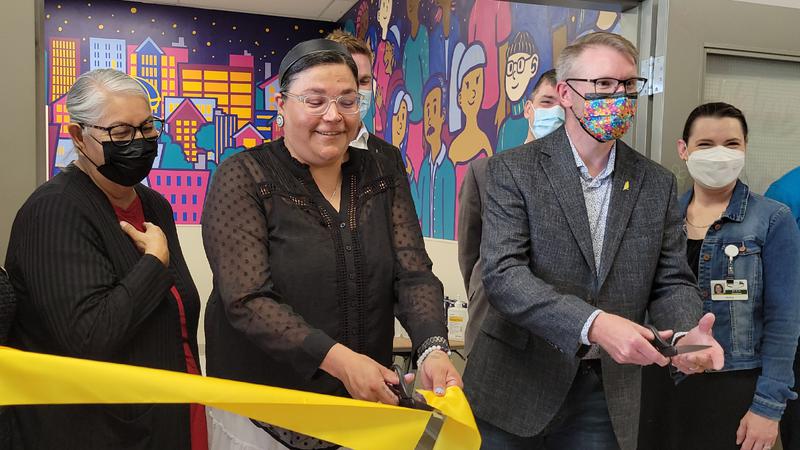
Launch held for Battlefords addictions clinic, harm reduction van
Significant upgrades in addiction services were unveiled in the Battlefords this week.
Many dignitaries were present for the grand opening of the Rapid Access to Addictions Medicine (RAAM) clinic in North Battleford, which is located within the Battle River Treaty 6 Health Centre (BRT6HC). The clinic features multiple disciplines in the world of health, utilizing physicians, nurses, addictions counselors and more to connect people with the best treatment and/or program.
BRT6HC Director Kent Lindgren said it’s exciting to see this day come after working in partnership local and provincially to establish the clinic.
“We’re in need of further addiction and mental health services that are really grounded in the community,” he said. “We’ve been operating for several months now, so this is nice to see it come to fruition.”





